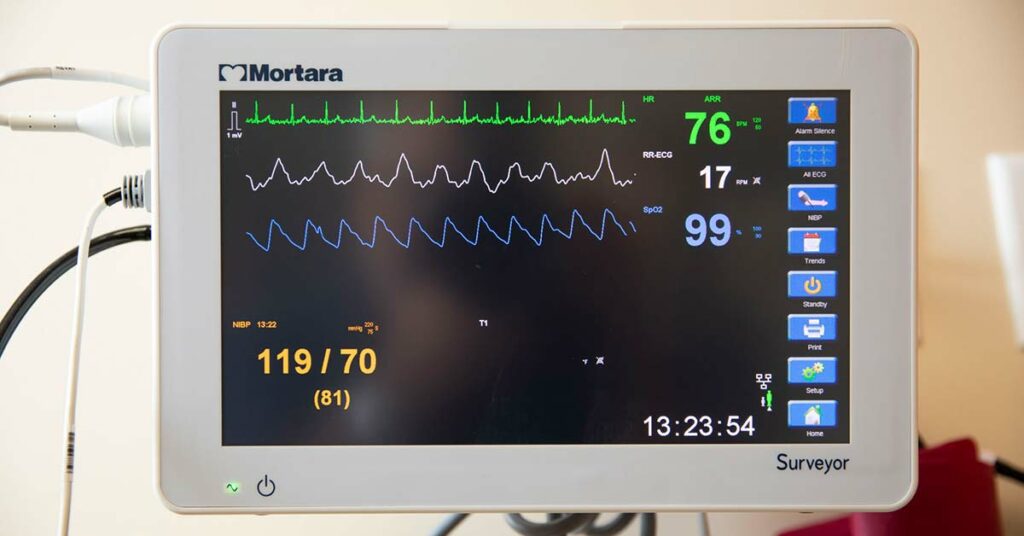Cardiology in the emergency room plays a pivotal role in the immediate diagnosis and management of patients presenting with acute cardiovascular conditions. When a patient enters the ER with chest pain, palpitations, shortness of breath, or syncope, cardiology-related interventions become paramount. Rapid electrocardiogram (ECG) evaluations, blood tests for cardiac enzymes, and immediate therapeutic measures can mean the difference between life and death. The emergency room teams, in collaboration with cardiologists, work diligently to quickly identify conditions such as acute myocardial infarctions (heart attacks), arrhythmias, congestive heart failure exacerbations, and pulmonary embolisms. The promptness and precision of cardiological assessments and treatments in the ER setting significantly influence patient outcomes and often set the course for subsequent long-term management of cardiac conditions.

Your heart works 24/7. So do we.
When you experience a cardiac emergency, Elitecare Emergency Hospital is available 24 hours a day, 7 days a week. Our team of board-certified emergency room physicians and emergency-trained nurses are equipped to handle all cardiac emergencies.
Chest Pain and Heart Attack
Chest pain is a symptom that should never be taken lightly, as it can be indicative of serious conditions such as a heart attack (myocardial infarction). Heart attacks occur when blood flow to a part of the heart is blocked, usually by a blood clot. This can lead to damage or destruction of the heart muscle. Chest pain associated with a heart attack is often described as a sensation of tightness, pressure, or squeezing, and can radiate to the jaw, neck, shoulders, back, or arms. Other symptoms might include shortness of breath, sweating, dizziness, nausea, or lightheadedness. While not all chest pain signifies a heart attack, it’s essential to err on the side of caution. If you or someone you know experiences chest pain, especially if accompanied by any of the other symptoms mentioned, it is imperative to seek emergency medical attention immediately and head to the ER. Early intervention can significantly improve outcomes and reduce damage to the heart muscle.
Read more…
Congestive Heart Failure
Congestive heart failure (CHF), often simply referred to as heart failure, is a condition where the heart doesn’t pump blood as well as it should. This can result from various medical conditions that either damage the heart or make its workload excessive. Over time, the heart’s inefficiency can lead to a buildup of fluid (or congestion) in the lungs and other parts of the body, hence the term “congestive” heart failure.
Read more…
High Blood Pressure (Hypertension)
High blood pressure, also known as hypertension, becomes a medical emergency when it reaches extremely high levels. This acute, severe condition is often referred to as a hypertensive crisis and can be categorized into two: Hypertensive Urgency (sudden blood pressure increase) or Hypertensive Emergency (blood pressure of 180/120 or higher).
If accompanied by symptoms such as shortness of breath, chest pain, severe headache, nausea/vomiting. In that case, it’s crucial to seek emergency medical attention immediately. A hypertensive emergency can lead to life-threatening complications, including stroke, heart attack, pulmonary edema (fluid backup in the lungs), or kidney failure if not treated promptly.
Read more…
Stroke
A stroke is always a medical emergency. Rapid intervention is crucial because the sooner a stroke is treated, the better the potential outcome and the lower the risk of long-term disability. The brain relies on a consistent supply of oxygenated blood, and when this supply is compromised, brain cells can begin to die quickly. If exhibiting signs of stroke such as weakness, trouble walking, trouble understanding, or sudden severe headache with no known cause, even if they seem to go away, it’s imperative to seek emergency medical attention immediately. The effectiveness of some stroke treatments, especially for ischemic strokes, can be closely tied to how quickly they are administered after the onset of symptoms.
Read more…
If you have questions about Cardiology, click the contact button below and speak to us for more information.














